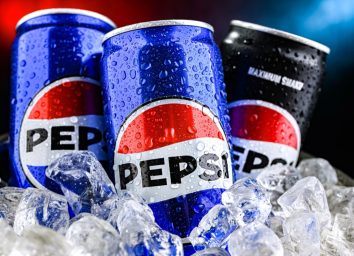Coffee May Protect You From Liver Disease, New Study Finds

If you've heard of non-alcoholic fatty liver disease (NAFLD), that's likely because it's something that affects around 10% to 20% of people in the United States, according to Johns Hopkins Medicine. You might also be aware of the fact that it can lead to liver damage, while potentially harming liver function. Fortunately, anyone who's eager to avoid the harmful effects NAFLD can have on their body can take various health-minded steps. That might include lowering your cholesterol, staying away from alcohol, and managing your weight. You might also want to drink a morning cup of Joe on a regular basis, according to a new study that has found coffee can help to protect you from liver disease.
The study that was published in Nutrients and sponsored by the Institute for Scientific Information on Coffee (ISIC) involved 156 adults who were middle-aged and all considered to be borderline obese, while 98 had type-2 diabetes (T2D). Addressing the connection between NAFLD and T2D, the researchers, including corresponding author John Griffith Jones, Ph.D., the senior researcher at the Center for Neuroscience and Cell Biology at the University of Coimbra, Portugal, explained via Medical News Today, "The risk factors for NAFLD and T2D are highly congruent and include obesity, hypertriglyceridemia, insulin resistance, and inflammation of both liver and adipose tissues."

During the study, the participants' body measurements were noted, while they also underwent liver scans and provided both urine and blood samples. On top of that, those involved answered questionnaires and filled out logs that tracked how much coffee they were drinking, as well as other beverages and foods that contained caffeine.
The resulting data showed that coffee metabolites may help to prevent NAFLD from becoming worse, with those behind the research stating, "Our study indicates that higher cumulative amounts of both caffeine and non-caffeine metabolites measured in a 24 h[our] urine collection are associated with a less severe NAFLD profile."

"The exact mechanisms by which coffee may help to prevent NAFLD are not yet well understood, but some research suggests that coffee consumption may help to improve insulin sensitivity, reduce inflammation, and decrease oxidative stress, which are all factors that are associated with the development of NAFLD," Adil Maqbool, MD, with the affiliated research team at Toho University, Japan, and a peer-reviewer at the Lancet Journal, tells Eat This, Not That! "I would say, overall, the relationship between coffee consumption and NAFLD is complex and requires further investigation."
"In the meantime, a balanced diet, regular exercise, and a healthy lifestyle are still the best ways to maintain overall health and reduce the risk of developing NAFLD," Maqbool says. As for people who have type-2 diabetes, Maqbool explains that they "should work closely with their healthcare team to manage their condition and prevent the development of associated complications."







